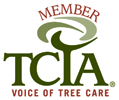
Vegetation Management
Adaptable lawn care programs designed to fit your needs. Well managed lawns are beneficial not sterile environmental liabilities.
Prevention is the best remedy
Lawn diseases- avoid pm watering, water early morning before heat. Avoid fertilization in most cases. Improve drainage and air movement Choose disease resistant species
Lawn insects- many lawn insects are beneficial and aid in control of pest species. Determine what pest species are present and determine if there are enough to warrant treatment. Time treatments to target pest vulnerability.
Lawn weeds- carefully timed herbicide applications combined with spot sprays are best used for weed control.
Poor soil and environmental conditions can lead to weed problems, determine the cause when considering the cure.
Tips for a Healthy Lawn
- Mow high, mow often, leave clippings. Longer grass improves root development, helps cool soil surface, aids in irrigation efficiency, and allows for greater competition with weeds. Three inches or higher blade height and remove no more than 1/3 of grass blade when mowing.
- Leave clippings they do not promote thatch but do return nutrients back to soil.
- Core aeration aids in thatch control, improves water infiltration, and reduces soil compaction.
- Cool season grasses go dormant in the summer months and will require more water to maintain the desired appearance

add some lawn care pictures too...





